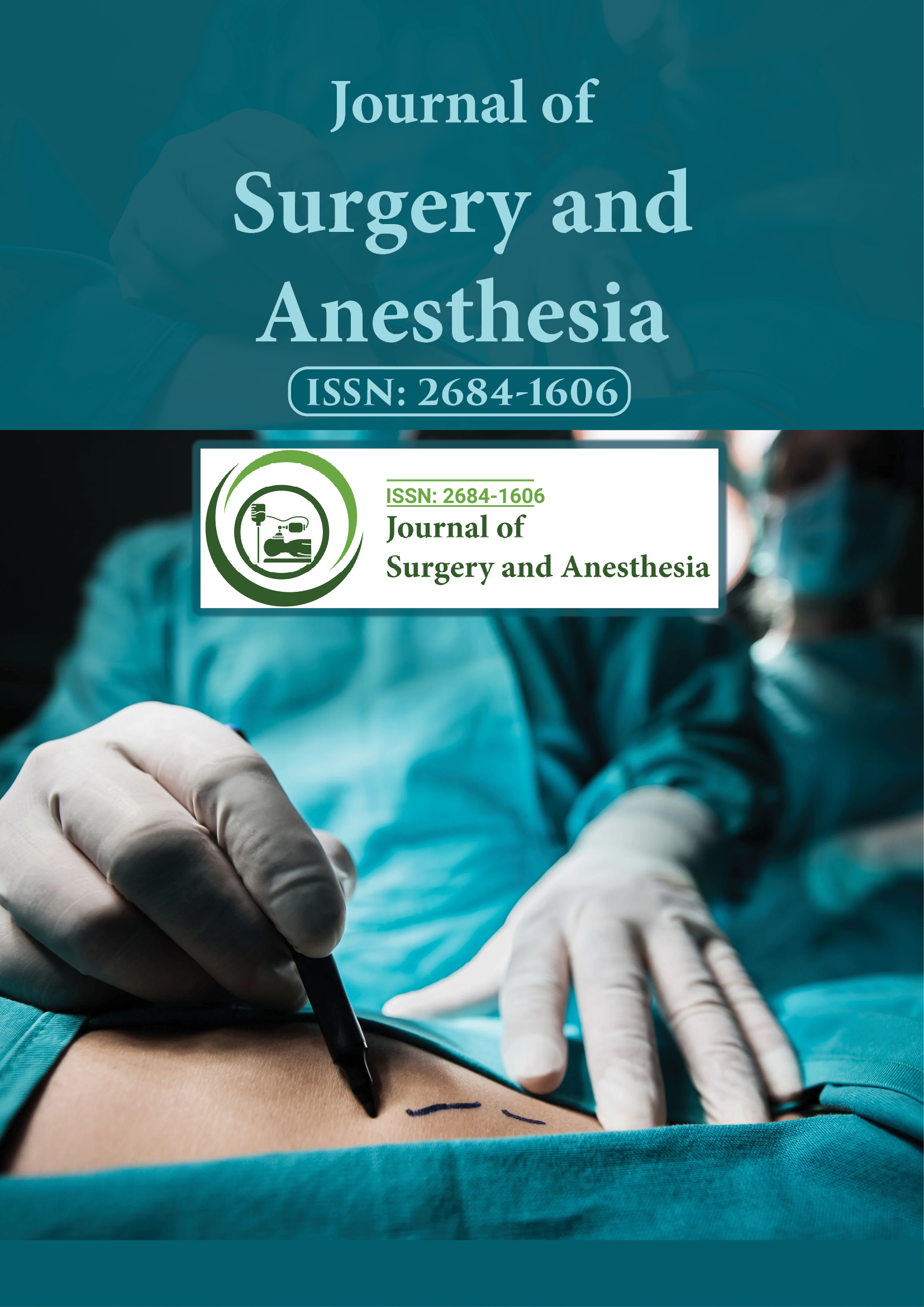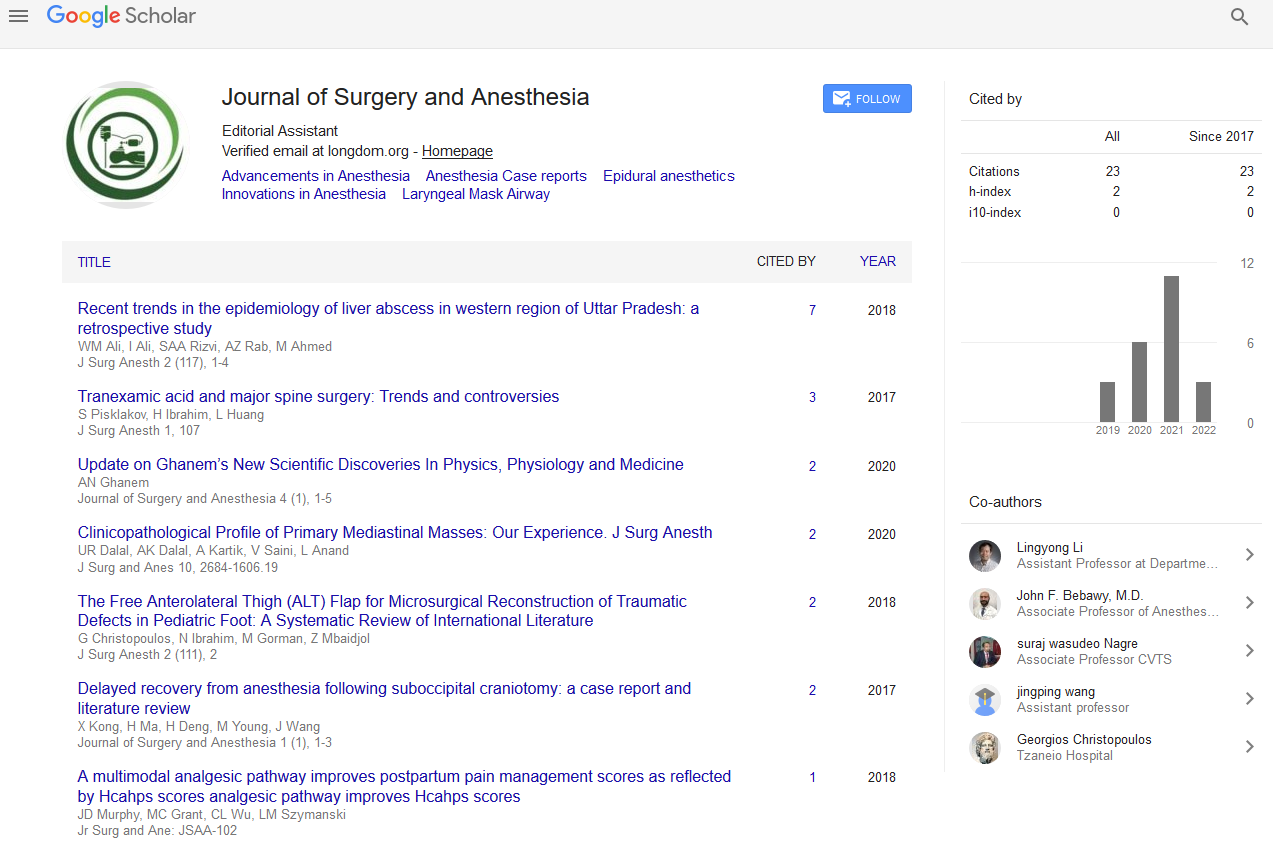Indexed In
- Google Scholar
Useful Links
Share This Page
Journal Flyer

Open Access Journals
- Agri and Aquaculture
- Biochemistry
- Bioinformatics & Systems Biology
- Business & Management
- Chemistry
- Clinical Sciences
- Engineering
- Food & Nutrition
- General Science
- Genetics & Molecular Biology
- Immunology & Microbiology
- Medical Sciences
- Neuroscience & Psychology
- Nursing & Health Care
- Pharmaceutical Sciences
Abstract
Crystalloid Fluid Pre-loading or Co-loading for Prevention of Spinal Anesthesia Induced Hypotension at Gandhi Memorial Hospital, 2016 Addis Ababa, Ethiopia: Comparative Cohort Study
Abebe Tiruneh*, Simegnew Kibret and Meron Abrar
Introduction: Caesarean section is a common procedure done in hospitals including in Ethiopian hospitals. Spinal anesthesia remains the preferred choice for Cesarean deliveries across the world with a low failure rate. However spinal anesthesia-induced hypotension is the commonest complication and the incidence ranges from 53.3% to 83%.
Objectives: To compare the preventive effect of crystalloid fluid preloading and co-loading for spinal-induced hypotension and its incidence, severity, and use of vasoconstrictors in obstetric mothers undergoing cesarean section at Gandhi Memorial hospital 2016 Addis Ababa, Ethiopia.
Methods: Cohort study design was used with a total of 96 mothers (48 of them preloaded and 48 of them coloaded with 1000 ml ringer lactate) involved in the study. Preoperative and other variables filled on the questioner than the Blood Pressure measured on an anesthesia monitor every 5 and 10-minute intervals till 60 minutes after spinal anesthesia was given. The data inter into EPI info and SPSS then finally analyzed with student T-test, chi-square or Fisher exact test and P value less than 0.05 declared as statistically significant.
Results: Incidence of spinal anesthesia-induced hypotension was high in the preload group 81.2% (39/48) and low in coload group 35.4% (17/48) and the result is statistically significant. Frequent Episode and more sever spinal anesthesia-induced hypotension were also common in the preload group.
Conclusion: Crystalloid fluid coloading to the operating mothers during the cesarean section was a better option for the prevention of spinal anesthesia-induced hypotension.
Published Date: 2021-02-16; Received Date: 2021-01-25

